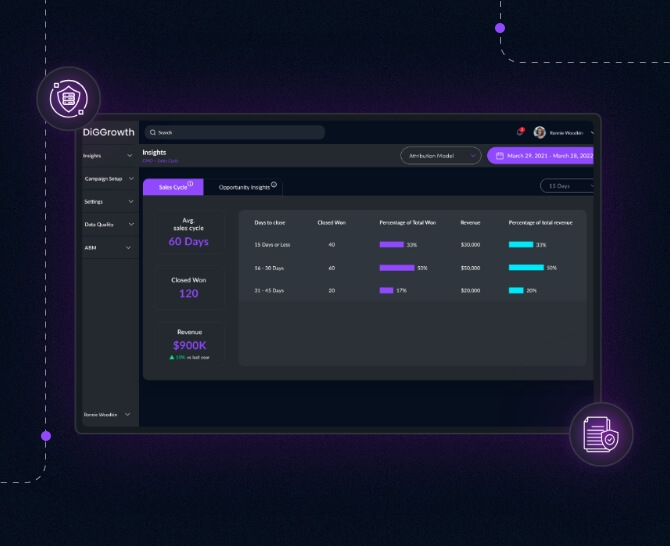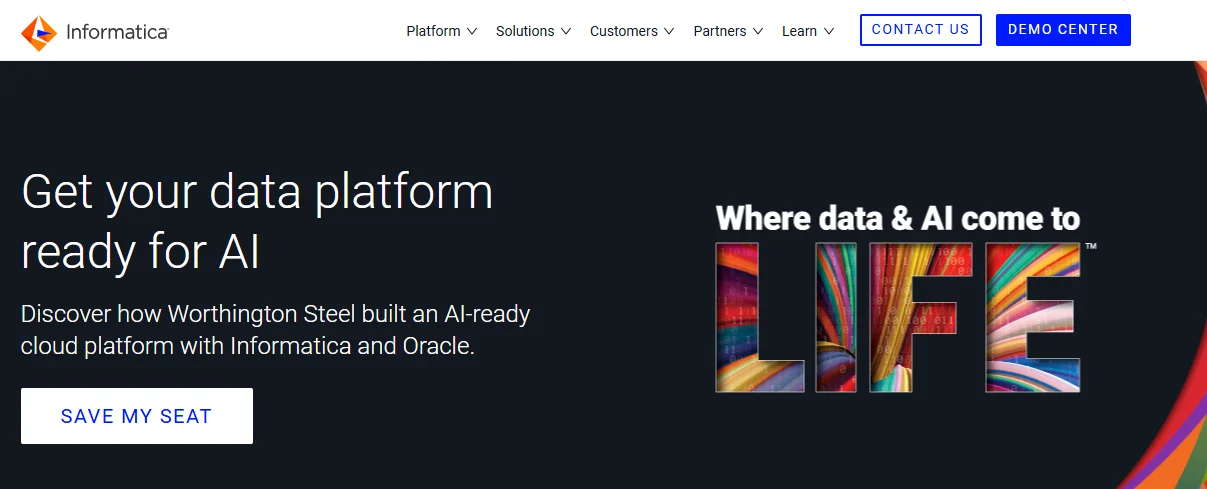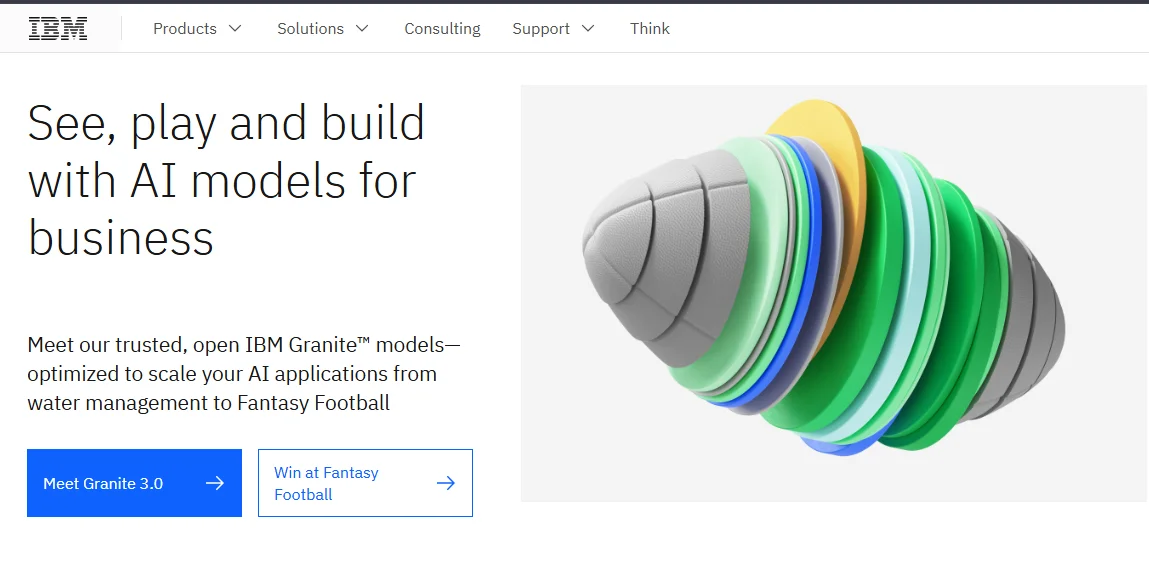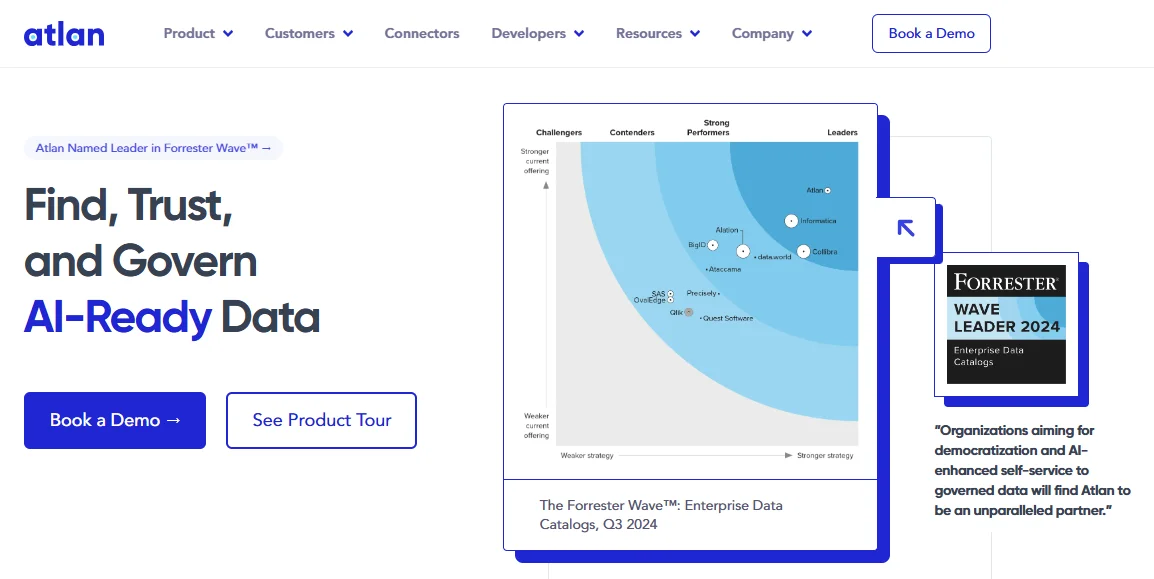
Data Governance Tools 2025 and Beyond: Staying Ahead in a Data-Driven World
As businesses increasingly rely on data to drive decisions, effective data governance has never been more critical. With the rise of new technologies and evolving compliance requirements, organizations must adapt by leveraging advanced data governance tools that ensure data quality, security, and compliance across all systems.
Have you ever wondered what it truly means for your business to be “data-driven”? Many organizations claim this status yet must improve with fragmented data, regulatory risks, and poor data quality undermining decision-making and growth. In a time where data is one of a company’s most valuable assets, why do so many businesses still need help managing it effectively?
The answer lies in the need for robust data governance. Companies risk everything from operational inefficiencies to costly compliance violations without a clear structure to oversee data policies, ownership, and quality. The complexity only deepens as data sprawls across cloud environments, on-premise databases, and third-party platforms. In addition to this, there is an evolving landscape of data privacy laws, and manual processes and outdated systems can’t keep up.
These tools offer a streamlined, automated approach to managing data assets, ensuring they’re accurate, secure, and accessible to those who need them. With capabilities ranging from metadata management to automated compliance tracking, data governance tools empower organizations to harness their data effectively, turning what once was a challenge into a strategic advantage.
The Evolution of Data Governance Tools
Data governance tools have come a long way since data management was handled through basic spreadsheets and manual oversight. Initially, organizations focused on data control primarily to maintain records and meet basic compliance requirements. However, as data generation grew exponentially, these manual methods quickly became obsolete, leading to inefficiencies and missed opportunities.
Modern data governance tools have evolved into comprehensive platforms that manage data and enhance data usability and reliability. Several key technological advancements have driven this shift:
- Automation and AI Integration:
- Cloud Computing:
- User-Centric Design:
Automation has reduced the labor-intensive tasks of tracking data lineage, ensuring data quality, and monitoring compliance. AI-driven capabilities now help identify data patterns, detect anomalies, and suggest corrective actions, making governance proactive rather than reactive.
The rise of cloud technology has redefined how data is stored and accessed, allowing data governance tools to support distributed and hybrid environments seamlessly. This evolution has enabled organizations to manage and secure data across various infrastructures without disruption.
Newer tools have embraced intuitive interfaces that make it easier for non-technical stakeholders to engage with data governance. This democratization ensures that data stewardship isn’t limited to IT departments but is a shared responsibility throughout the organization.
Core Capabilities of Effective Data Governance Tools
Modern data governance tools are essential for transforming raw data into a valuable business asset. Here are the key capabilities that make them indispensable:
- Data Cataloging and Metadata Management
- Data Lineage and Auditing
- Access Control and Compliance
- Data Quality Management
- Scalability and Integration
These tools automatically compile and organize metadata, creating searchable catalogs that improve data discovery and usage across the organization. This fosters better collaboration and informed decision-making.
This transparency is crucial for maintaining trust and swiftly addressing data issues, while auditing features provide logs that strengthen data security and compliance efforts.
Robust tools include multi-layered access control to enforce data privacy and meet regulatory requirements like GDPR and CCPA. Automated compliance features simplify adherence to evolving laws, protecting against penalties and reputational risks.
High-quality data is essential for accurate insights. Effective tools identify and fix data inconsistencies, ensuring reliability throughout data pipelines. This supports business intelligence and operational excellence.
The best tools scale with a company’s growth and integrate seamlessly with various data sources and systems, from legacy platforms to cloud solutions. This adaptability ensures consistent governance across all environments.
Data Governance Tools to Check Out in 2025 and Beyond
DiGGrowth

DiGGrowth, traditionally recognized as a marketing analytics platform, possesses features that align with data governance principles, making it a potential asset for organizations looking to enhance their data governance, especially in the marketing sphere. Its data integration, standardization, and comprehensive analytics can facilitate trustworthy and structured data management.
Key Features
- Data Integration and Centralization:
- Standardized Metadata Management:
- Enhanced Data Quality:
- Compliance Support:
- No-Code Accessibility for Broader Data Stewardship:
DiGGrowth’s capability to integrate data from various sources, including CRMs, ad platforms, and analytics tools, supports data governance by centralizing data storage and ensuring consistency across marketing databases. This unified approach helps organizations streamline data processes and reduce data silos.
Through its campaign tracking and enrichment tools, DiGGrowth standardizes campaign metadata. This feature is critical for maintaining data quality, providing transparency, and enabling teams to have consistent and reliable data definitions, which supports lineage and better data understanding.
DiGGrowth emphasizes data accuracy through its powerful analytics and reporting functions. This focus ensures that the data used for marketing strategies is high quality, reducing errors and enabling decision-makers to work with accurate insights, a key element of effective data governance.
Although not specifically a compliance tool, DiGGrowth’s structured data handling and centralized data management contribute to better adherence to data governance standards. Its approach supports privacy and security practices by making data more traceable and managed within an organized framework.
DiGGrowth’s no-code platform empowers users without technical expertise to effectively manage data integration and governance practices. This feature supports broader data stewardship within an organization, enabling more stakeholders to participate in maintaining governance standards without the need for coding knowledge.
Benefits of Using DiGGrowth for Data Governance
- Improved Decision-Making:
- Enhanced Data Trust and Transparency:
- Streamlined Compliance:
- Increased Efficiency:
- Broader Data Stewardship:
DiGGrowth helps organizations make decisions based on accurate, up-to-date information essential for strategic marketing efforts by centralizing and standardizing data.
With standardized metadata and high data quality, teams can trust their data. This fosters collaboration and ensures that data-driven strategies are reliable.
The platform’s structured approach helps align with regulatory requirements by providing traceable and well-managed data practices, reducing the risk of compliance issues.
DiGGrowth’s automation and no-code features make data management easier, reducing the time and resources spent on manual data governance tasks.
The user-friendly, no-code interface enables more team members to engage in data stewardship, promoting a culture of accountability and shared responsibility in data governance.
DiGGrowth’s integrated approach supports marketing analytics and strengthens data governance by promoting data consistency, quality, and compliance, making it an asset for data-driven organizations.
Informatica

Informatica is a top-tier data governance platform that provides consistent, accurate, and secure data intelligence to drive informed business decisions. Available both in the cloud and on-premise, it seamlessly integrates business and IT, enabling a unified approach to data strategy. Powered by CLAIRE AI, Informatica automates processes with active metadata for efficient, reliable results.
Key Features
- AI-Powered Automation:
- Integrated Data Quality and Observability:
- Governed Data Marketplace:
- Holistic Metadata Linking:
- Accelerated Decision-Making:
- Enhanced Data Security and Consistency:
CLAIRE AI enhances automation, streamlining data governance processes and increasing efficiency.
Offers comprehensive visibility through profiling statistics and scorecards to maintain high data quality.
Facilitates secure, policy-based data sharing across the organization to ensure compliance and trust.
Automatically connects metadata with business context for greater transparency and cohesive insights.
Delivers trusted data faster to support rapid and informed decision-making.
Ensures data accuracy and protection, enabling safe, reliable data access.
Informatica aligns technical and business users, fostering collaboration and supporting responsible AI practices for a robust data governance ecosystem.
IBM

IBM Data Governance offers an extensive solution to identify and manage data across the enterprise, covering both structured and unstructured formats. This platform empowers businesses to efficiently track data objects, including their definitions, attributes, and usage, supporting data management with transparency and precision. It’s designed to address privacy, compliance, and quality, helping organizations mitigate regulatory risks and streamline data stewardship. IBM Data Governance provides a robust framework for maintaining high data quality and ensuring data privacy, enabling organizations to navigate complex compliance landscapes confidently.
Key Features
- Comprehensive Data Governance Foundation:
- Data Quality Management:
- Privacy and Compliance Assurance:
- Simplified Data Stewardship:
Establishes a controlled data environment that supports data privacy and compliance, driving better data outcomes.
Uses AI-driven rules to help data stewards visually analyze data quality statistics and curate high-quality datasets.
Identifies sensitive data and applies dynamic data protection rules, leveraging role-based access to minimize regulatory risks.
Facilitates automatic data discovery, classification, and the assignment of business terms to streamline the management of governance artifacts and improve data accessibility.
Alation

Alation Data Governance is designed to empower organizations by fostering data-driven decision-making while prioritizing data security and compliance. The platform ensures comprehensive knowledge of data assets, covering their lineage, user rights, and reliability, which is essential as data becomes an integral part of AI model development. By consolidating data and metadata, Alation helps create a unified view that eliminates data silos and improves accessibility across departments.
Key Features
- Centralized Metadata Management:
- Regulatory Compliance Assurance:
- Data Integrity and Quality:
Alation integrates metadata from different systems, enabling a single source of truth. This facilitates smoother data access, sharing, governance, and cross-organizational use, breaking down silos that hinder collaboration.
Equipped with automated workflows and policy management tools, Alation adapts to evolving regulations, reducing risk and ensuring that governance practices remain current and effective.
Alation’s features, including data lineage tracking, curation, and quality controls, provide teams with accurate and dependable data, ensuring that decisions are based on verified and trusted information.
Atlan

Atlan offers a next-generation platform designed to make data governance a proactive and dynamic process, empowering teams to manage data with agility, precision, and confidence. By leveraging automation and AI, Atlan shifts from passive data handling to active governance, enabling organizations to make informed decisions, streamline operations, and ensure compliance effectively.
Key Features
- Data Products & Domains:
- AI-Infused Automation:
- Policy Management & Transparency:
- Customizable Governance Policies:
- Approval Workflows:
- Tag Management and Data Contracts:
Facilitates the democratization of data by empowering various domains to curate and share reusable, reliable data products, ensuring seamless access across the organization.
Integrates AI into workflows to simplify governance processes, providing tools for metadata enrichment and policy automation that reduce manual effort and enhance efficiency.
The Policy Manager and Transparency Center deliver a real-time overview of policy coverage, incidents, and potential breaches, ensuring robust compliance without scattered documentation.
Supports unique organizational needs with adaptable governance policies, backed by AI-assisted policy creation that simplifies writing, refining, and linking policies to data.
Streamlines policy approval processes with intuitive, no-code setups and easy task management, reducing the need for extensive manual oversight and expediting approvals.
Enhances data reliability by enabling synchronized tagging and embedding governance into data producer workflows, boosting confidence in data quality.
Emerging Trends in Data Governance Tools
As the data landscape evolves, data governance tools rapidly adapt to meet new challenges and opportunities. Here are some emerging trends that organizations should watch to stay ahead in data management:
1. Integration of AI and Machine Learning
AI and machine learning (ML) have become integral to modern data governance tools. These technologies automate complex tasks such as anomaly detection, data classification, and predictive data quality checks. By analyzing data patterns and predicting potential governance issues, AI-driven tools enable organizations to shift from reactive to proactive management, leading to quicker, data-driven decision-making with minimal manual effort.
2. Cloud-Based Data Governance
Cloud-native governance tools have gained momentum as data storage and processing shift towards hybrid and multi-cloud environments. These tools provide scalable solutions that effectively manage distributed data assets while maintaining strict security and compliance standards. Their seamless operation across on-premises and cloud infrastructures helps organizations ensure consistent governance, aligning with the global push for digital transformation and adaptable remote work solutions.
3. User-Friendly Interfaces and Collaboration Tools
The democratization of data governance continues to be a critical trend. Newer tools are designed with intuitive, user-friendly interfaces that make it easier for non-technical stakeholders to participate in data governance processes. Enhanced dashboards and self-service options foster collaboration across departments, empowering teams beyond IT to engage in data stewardship. This promotes a culture of shared responsibility, relieving data specialists of sole governance tasks and spreading data management efforts throughout the organization.
4. Real-Time Data Monitoring and Compliance Automation
Increasingly stringent compliance requirements demand that organizations maintain vigilance. Emerging tools now offer real-time data monitoring coupled with automated compliance checks, ensuring that deviations from regulatory policies are flagged and addressed immediately. This proactive approach helps businesses maintain continuous compliance and reduce the risk of penalties, enhancing their reputation for robust data management practices.
5. Enhanced Data Privacy and Security Measures
With the escalation of cyber threats, advanced security features have become crucial within data governance tools. Capabilities such as automated encryption, dynamic data masking, and adaptive access protocols enhance sensitive data protection. These measures ensure that data remains secure from unauthorized access while being accessible to the appropriate users, balancing privacy with operational needs.
6. Advanced Analytics for Governance Insights
One of the most impactful trends is the integration of analytics into data governance tools. These tools now include advanced analytics features that provide deep insights into data usage, policy adherence, and process efficiencies. By leveraging these analytics, organizations can better understand how data governance practices influence their operations. This helps identify trends, spot inefficiencies, and fine-tune governance strategies over time. Adding analytics transforms data governance from a static compliance measure into a dynamic contributor to business growth and efficiency.
Key Considerations for Choosing the Right Data Governance Tool
Choosing the right data governance tool is essential for effective data management and compliance.
1. Customizability
Your data governance tool should be flexible enough to adapt to your organization’s unique needs. It should support customized workflows, data policies, and industry-specific requirements to fit your data governance strategy.
2. Integration with Existing Systems
Ensure the tool integrates easily with your existing data infrastructure, such as databases, data warehouses, CRMs, and cloud platforms. Seamless integration ensures consistent governance across all systems without disrupting operations.
3. Scalability
As your business grows, so does your data. Choose a tool that can scale to handle increasing data volumes and complexity, ensuring your governance practices evolve as your data needs expand.
4. Vendor Support
Reliable vendor support is key for smooth implementation and long-term use. Ensure the vendor provides strong customer service, training, and ongoing technical support to maximize the tool’s value.
5. User Adoption
Look for tools with intuitive, user-friendly interfaces that enable easy adoption across departments, not just IT. Comprehensive training and resources will help ensure company-wide participation in data governance.
6. Data Security and Compliance
The tool must include robust security features like encryption, access controls, and audit logs to protect sensitive data. It should also help ensure compliance with regulations like GDPR and CCPA.
Key Takeaways
- Data governance tools are essential for managing, securing, and ensuring data quality across organizations, turning data into a strategic asset.
- Modern tools have evolved to include AI-driven automation, advanced analytics, and enhanced security, making data governance more proactive and efficient.
- Effective data governance tools offer core capabilities such as metadata management, data lineage, access control, and automated compliance tracking.
- Emerging trends, like AI integration, real-time monitoring, and cloud-based governance, are shaping the future of data management and compliance.
Conclusion
Staying ahead of the competition requires more than just collecting vast amounts of data—it demands effective data governance. By adopting the right data governance tools, businesses can enhance data accuracy, ensure compliance with ever-changing regulations, and foster a culture of data stewardship throughout the organization. As data continues to grow in both volume and complexity, modern governance tools will help organizations harness the full potential of their data, driving informed decision-making and sustainable growth.
The future of data governance is here, and those who embrace the right tools will lead the way in building smarter, more agile organizations.
Ready to transform your data governance strategy?
Just write to us at info@diggrowth.com and let us help you navigate the world of data management tools to ensure your business stays ahead.
Ready to get started?
Increase your marketing ROI by 30% with custom dashboards & reports that present a clear picture of marketing effectiveness
Start Free Trial
Experience Premium Marketing Analytics At Budget-Friendly Pricing.

Learn how you can accurately measure return on marketing investment.
Additional Resources
How Predictive AI Will Transform Paid Media Strategy in 2026
Paid media isn’t a channel game anymore, it’s...
Read full post postDon’t Let AI Break Your Brand: What Every CMO Should Know
AI isn’t just another marketing tool. It’s changing...
Read full post postFrom Demos to Deployment: Why MCP Is the Foundation of Agentic AI
A quiet revolution is unfolding in AI. And...
Read full post postFAQ's
Neglecting data governance can lead to poor data quality, regulatory fines, security breaches, and inefficient decision-making. It exposes businesses to compliance risks and operational inefficiencies, harming their bottom line and reputation.
Small businesses can start by using scalable, cost-effective data governance tools that automate data management tasks. Focusing on key areas like data security, access control, and metadata management helps create a strong foundation for growth and compliance.
Data governance ensures that AI and machine learning models are built on accurate, high-quality data. By maintaining data integrity, governance supports better model performance, compliance, and ethical use of AI technologies.
Data governance tools help businesses track data lineage, enforce access controls, and automate compliance checks. These features ensure adherence to regulations like GDPR, CCPA, and HIPAA and simplify the process of maintaining compliance across different regions.
Many data governance tools are designed with advanced security and privacy features, such as encryption, dynamic data masking, and role-based access. These tools help industries like healthcare and finance meet strict privacy regulations while maintaining data integrity.


